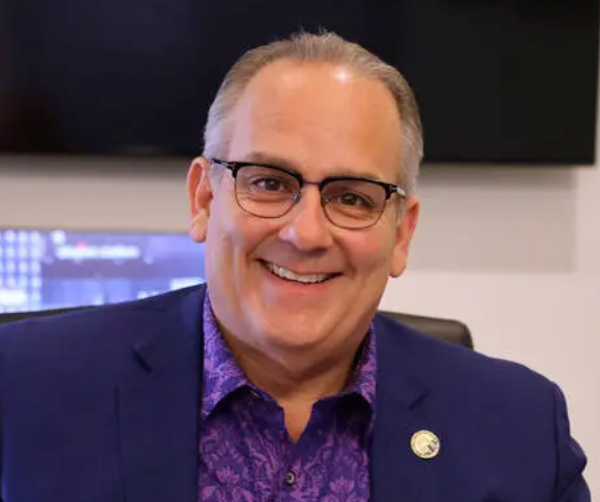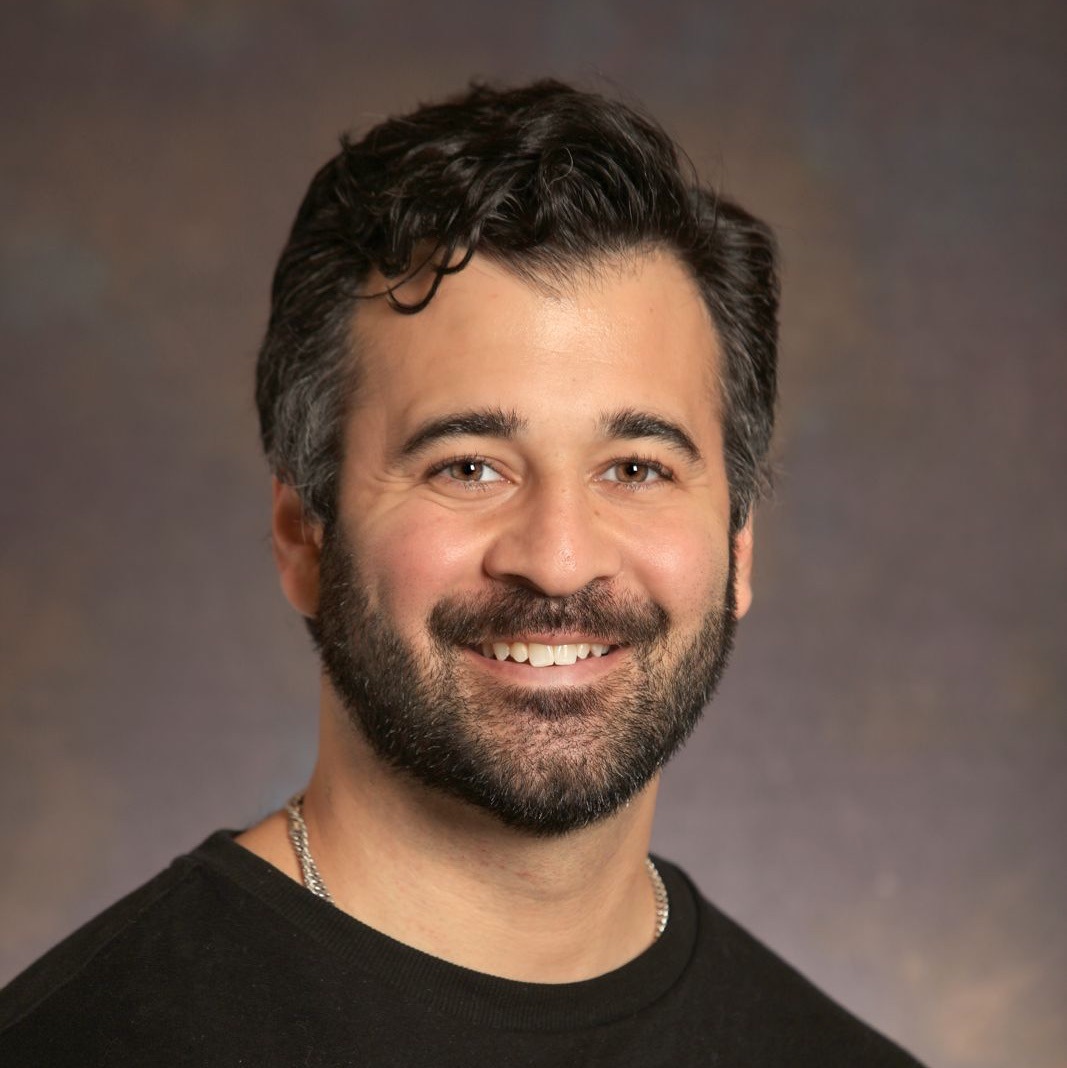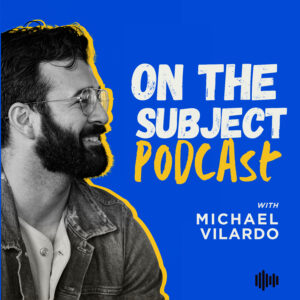#49 – Former Clark County Superintendent on the Moment He Nearly Walked Away

On This Episode

Guest: Dr. Jesus Jara
Clark County Superintendent

Host: Michael Vilardo
Co-Founder and CEO of Subject.com
Episode Transcript
Michael Vilardo (00:12–00:40):
Welcome back to another episode of On the Subject. I’m your host, Michael Vilardo, co-founder and CEO of Subject, Subject.com. You know where to find us. We have an incredibly special guest today. We’re traveling around the country to find the most innovative leaders in education.
Today, we have a travel guest not based in California, but one of the most legendary superintendents across the country. Worked in Monroe, Orange County, and now, most recently, Clark County superintendent for the last six years. Dr. Jara, welcome to the show.
Dr. Jesus Jara (00:41–00:42):
Well, thank you for having me.
Michael Vilardo (00:42–00:43):
Thank you, I’m really excited.
Dr. Jesus Jara (00:43–00:44):
I’m excited to be here.
Michael Vilardo (00:44–00:48):
Yeah, I love being able to share your story. And why education? Why did you want to help kids?
Dr. Jesus Jara (00:48–02:26):
Oh boy, I ask myself that question so so often. And it was really education when I came to this country, when I was 10, from Venezuela. And I still remember my teachers. I remember Ms. Kilbride, my fourth grade teacher, so caring…
At that time, I was so afraid of coming to America, right? My parents come here and bring us, and not where I wanted to be, but, you know, my parents didn’t ask me.
Just like so many of our kids, and she made an impact, and I had so many teachers along the way. I had a coach, Coach Larsh.
Nice, I played football my size, right? It was like I was a soccer player until I got to high school. But that’s another podcast, right? And so just had so many people that were along the way helping me.
And when I was coaching and being a trainer, a teacher, I taught science, bilingual science teacher, I started Miami-Dade and then just kind of went up the ranks. And as a superintendent in Urban America, I found myself seeing so many of the kids that had my story and it was really something that I felt like I needed to give back to our society. Children come to us from so many different walks of life. I had a passion to really be the one to say we are going to prove to America that poor children can learn at high levels.
And it’s the adults that have to be that servant leader to really be caring and empathetic, to meet kids where they are and get them to achieve and we did that by putting the right team together. And that’s kind of my story.
Michael Vilardo (02:26–02:52):
I love your story. No, thank you for all that you’ve done for students. We always love to express gratitude, and I think we always share that sentiment that teachers and coaches are the heroes of society. And you’ve both lived it as a student, you lived it as a teacher, and now you’ve lived it as a superintendent. When you were able to go all across the country, you did so many different states, which is really impactful.
So you could see how different states work. How were you able to elevate yourself into such incredible roles where you can impact more students?
Dr. Jesus Jara (02:52–02:53):
So I guess luck.
Michael Vilardo (02:55–02:55):
You earn your luck.
Dr. Jesus Jara (02:56–03:25):
Yeah, you do, but, you know, follow the right leaders. My mom is one that just really stayed working hard and never turned down an opportunity.
I was in college for my masters and I told Dr. Burke, hey, he was a finalist for the job in Springfield, and I was an assistant principal. And I said, if you get the job, I’ll go with you. Then he calls me and says, hey, I got the job.
Michael Vilardo (03:26–03:26):
You’re coming with?
Dr. Jesus Jara (03:26–03:30):
And I went, did some great work in Springfield, Massachusetts. So imagine.
Michael Vilardo (03:30–03:32):
Oh, so, I didn’t even know about this part of your story.
Dr. Jesus Jara (03:32–04:17):
Imagine leaving Miami to go to Massachusetts. That’s in selling that to your home, right? And my wife then is like, but you know, it was an opportunity. Then went back to Florida, which is where we wanted to be at that time, but it was really something about what I, and when I was a superintendent, I used to tell principals all the time.
I said, look, don’t go out. Because so many of young people, young teachers, young principals, they’re always looking for the next job, always looking. And I used to always say, because it’s what I learned, right? So it’s let your results speak for themselves and they will tap you.
Your results, your data, is the real impact that you’re having. It’s what’s going to move you to the next phase. And I guess that’s what happened for me, and I never said no.
Michael Vilardo (04:17–04:34):
Yeah, be so good, they can’t deny you. It’s when you have that ability to be able to command respect with your actions more than your words. You’re able to be put in positions where you can drive a lot of leverage and impact, and so that’s super impressive on your end.
What was the biggest thing, in your opinion, that has changed over your 30 plus years in education?
Dr. Jesus Jara (04:35–05:34):
People will say, Well, kids have changed, but that’s not true. Kids are the same. When I was first teaching, I remember saying to Mr. Vandering, we were coaching together.
He was my teacher. I’d complain. I said, coach, these kids… and he said, you were just like them 10 years ago, so it’s not these kids, right?
The kids haven’t changed, I think the access to technology, the access to information… that has really changed and has given kids more tools, more resources. I think that is something that is one of the things that has pushed school systems to individualize for children and given tools. Some have, really, I would say, endorsed it and really supported it, others have not.
And unfortunately, some of the adults are the biggest barriers, right? As a principal, I was always afraid, right? Teachers were afraid because kids are born, our children are digital natives, you say that often.
Michael Vilardo (05:34–05:35):
They have an iPhone in their hand — supercomputer.
Dr. Jesus Jara (05:35–06:09):
Right, they have an iPad, they’re learning. Now that I’m on this side of the world, I’m learning how to do things. Because when you’re superintendent, you got a lot of support and I called my daughter, who’s 23.
I said, How do you put all these different receipts together? She goes, Dad, here in three clicks, she gives me a combined PDF. I mean, those things. It’s what’s happening in classrooms, and then we’re expecting for kids to learn how to read and be engaged by standing up in front of a chalkboard.
Not going to engage kids.
Michael Vilardo (06:09–06:20):
I do not like chalkboards. It’s all about content and media, so we’re really leaning into that here.
Where do you want to see education 10 years from now? What would your dream?
Dr. Jesus Jara (06:21–07:44):
Well, I think one of the things that when you think about public education, you think about education, obviously, it’s more than just test scores. Kids need to be able to read at a high level, but how are we individualizing education for children, all kids?
I used to always say to my team all the time, all means all, not just those who are coming here. I used to say that our school proof, that our teacher proof, right, all means all the kids. So how do we meet kids where they are and advance them to where they need to be up and get there? Some kids need more than others, so to me, where you walk into a school, a Zip code doesn’t determine your success.
It’s an opportunity. Where why do we have to sit in schools that at 180 days determines your success, right? If you can learn algebra one in 90 days, that’s what you get, but if it takes you longer… So how do we individualize education to meet the individual needs of kids?
You’ve seen that in pockets. You’re seeing that already across this country, pockets where kids are learning at their own pace, where they don’t have to come to school. We did some pilots in Clark County where kids would come to school. Monday, Tuesday, Thursday, Friday, Wednesday became office hours. Why do kids? Why do we have to do it in five days a week?
Unknown Speaker (07:44–07:44):
I agree.
Michael Vilardo (07:44–07:48):
It shouldn’t have to be just because something’s always been done that way. Challenge the status quo.
Dr. Jesus Jara (07:48–07:55):
Yeah, absolutely. Disrupt the learning and meet kids where they are, and I think the adults need to be the resource for kids.
Michael Vilardo (07:55–08:19):
I completely agree, and I love your passion for innovation. You’ve already done this a little bit on the podcast, but the way that we really like to be able to wrap any pod is a moment of gratitude and thanking one of your teachers or students who impacted you. You’ve given a ton of great shout outs already, so I don’t want to overburden you. But is there anything else you’d love to do in terms of thanking either a student or teacher that impacted who you’ve become today?
Dr. Jesus Jara (08:19–08:37):
So I told you my teachers. There’s kids that I still remember, and there was one kid… this is very personal. There was a time when I was superintendent, you can read it… I was fired, rehired, right, by the same board. That’s a different podcast.
Michael Vilardo (08:37–08:38):
Board Management.
Dr. Jesus Jara (08:38–09:49):
Board management, that is a different podcast. And this kid, I don’t even know him, and he didn’t know me. But on that Sunday, I was going back to work. I had just been terminated, but at 30 days. So I’m walking in the neighborhood. I just couldn’t, I couldn’t. What do I say to my team?
Right, what do I say to the team to keep the passion going? And I’m walking in the neighborhood just to kind of get some air. So I see a kid walking in the neighborhood, putting his parents business cards in the homes for cleaning service.
I used to do that for my mom when I was a kid, right when my dad left, and my mom, we were undocumented… and that’s a different podcast. But I was doing that and I said, you know what, you got to chin up because that kid needs a superintendent, that’s what he wants.
And to me, that kid. I thank him because he gave me the energy to go back in the last two years of my tenure in Clark County to continue the work. So, it’s what drives me. I was always student centered, and maybe sometimes that doesn’t work for the adults.
Michael Vilardo (09:50–10:15):
It’s all about the learner and that’s what we’re here for. And you’re so inspiring. I love your words. Everyone out there, we should fight for that kid and remember how lucky you are and the chance to be able to breathe that next breath of air and be able to impact more people. That was really special, Dr. Jara and thank you so much for spending time with us. Find us on YouTube, Spotify, click below, like, subscribe and hear incredible stories like this. Thank you so much for an incredible day.
Dr. Jesus Jara (10:15–10:17):
This is so fun. Thank you.
Michael Vilardo (10:17–10:17):
Thank you.
Let’s talk about Subject
345 N Maple Dr. STE #130
Beverly Hills,
CA 90210, USA
Support
contact@subject.com
Academics
accreditation@subject.com
Customer Hub
Login
Support
Success Stories

